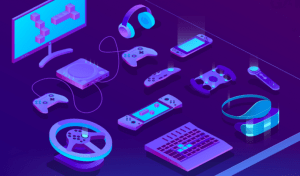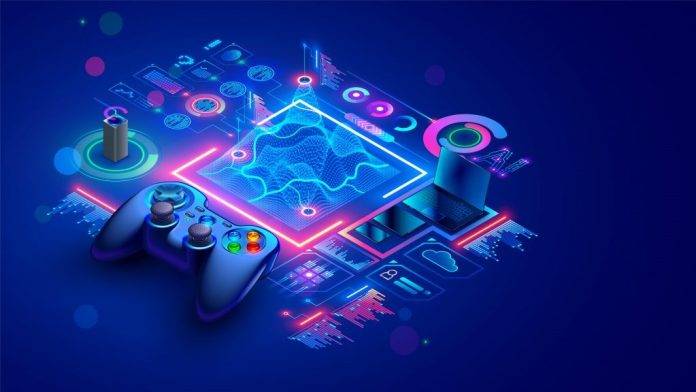
Blockchain technology has rapidly expanded its reach into various sectors, and one of the most promising applications is in the realm of gaming. In this article, we’ll delve into the world of blockchain gaming, exploring its definition, benefits, popular games, impact on the gaming experience, challenges, and future prospects.
Introduction to Blockchain Gaming
What is blockchain gaming?
Blockchain gaming refers to the integration of blockchain technology into video games, enabling players to have true ownership of in-game assets and fostering a decentralized gaming ecosystem.
Evolution of blockchain technology in gaming
Blockchain gaming has evolved from the early experiments with cryptocurrencies to sophisticated gaming platforms that leverage blockchain’s unique features.
Benefits of Blockchain Gaming
Transparency and security
Blockchain technology ensures transparency by recording all transactions on a decentralized ledger, thus preventing fraud and cheating within games.
Ownership of in-game assets
Unlike traditional games where players merely license digital assets, blockchain gaming allows players to truly own their in-game items, which can be bought, sold, or traded outside of the game environment.
Decentralization and player autonomy
Blockchain gaming promotes decentralization by removing the need for central authorities, giving players greater control over their gaming experience and fostering a sense of community ownership.
Popular Blockchain Games
CryptoKitties
CryptoKitties gained widespread attention as one of the first blockchain games to introduce the concept of non-fungible tokens (NFTs), allowing players to collect, breed, and trade unique digital cats.
Axie Infinity
Axie Infinity is a blockchain-based game that combines elements of pet breeding, battling, and resource management. Players can earn cryptocurrency by participating in battles and completing tasks within the game.
Decentraland
Decentraland is a virtual reality platform powered by the Ethereum blockchain, where users can buy, sell, and build on virtual land parcels using the platform’s native cryptocurrency, MANA.
How Blockchain Enhances Gaming Experience
Immutable ownership
Blockchain technology ensures that in-game assets are securely stored on a tamper-proof ledger, providing players with immutable ownership and preventing unauthorized modifications or deletions.
Interoperability between games
Blockchain protocols like Ethereum enable interoperability between different games, allowing players to use their assets across multiple gaming platforms seamlessly.
Play-to-earn opportunities
Blockchain gaming introduces new economic models where players can earn cryptocurrency by participating in gameplay, completing tasks, or contributing to the ecosystem through various activities.
Challenges in Blockchain Gaming
Scalability issues
One of the main challenges facing blockchain gaming is scalability, as existing blockchain networks struggle to handle the large volume of transactions required by popular games.
User adoption and education
Blockchain gaming is still in its early stages, and widespread adoption requires educating players about the benefits and mechanics of blockchain technology.
Regulatory concerns
The regulatory landscape surrounding blockchain gaming is evolving, with policymakers grappling with issues related to taxation, licensing, and consumer protection.
Future Outlook of Blockchain Gaming
Growth potential
Blockchain gaming has immense growth potential, with industry analysts projecting significant market expansion as more players embrace decentralized gaming platforms.
Integration with mainstream gaming
As blockchain technology matures and becomes more user-friendly, we can expect to see greater integration between blockchain and traditional gaming, leading to new and innovative gameplay experiences.
Technological advancements
Advancements in blockchain technology, such as layer 2 solutions and improved consensus mechanisms, will address scalability issues and enhance the performance of blockchain gaming platforms.
Conclusion
Blockchain gaming represents a paradigm shift in the gaming industry, offering players unprecedented ownership, transparency, and autonomy. While challenges remain, the potential for blockchain to revolutionize gaming is undeniable, and we can expect to see continued innovation and growth in this exciting space.
FAQs
- What makes blockchain gaming different from traditional gaming? Blockchain gaming offers true ownership of in-game assets, transparent gameplay mechanics, and decentralized ecosystems, unlike traditional games where players have limited control over their virtual possessions.
- How do players earn money through blockchain gaming? Players can earn cryptocurrency through blockchain gaming by participating in gameplay, completing tasks, trading in-game assets, or contributing to the development of gaming platforms.
- Are blockchain games secure from hacking and fraud? Blockchain technology provides robust security measures against hacking and fraud, thanks to its decentralized nature and cryptographic encryption, making it highly resistant to unauthorized tampering.
- Can I use my blockchain gaming assets in other games? Depending on the interoperability features of the blockchain network, some games allow players to use their assets across multiple gaming platforms, enabling greater flexibility and utility.
- What is the future of blockchain gaming? The future of blockchain gaming is bright, with ongoing technological advancements, increased adoption, and integration with mainstream gaming expected to drive continued innovation and growth in the industry.

Nice article